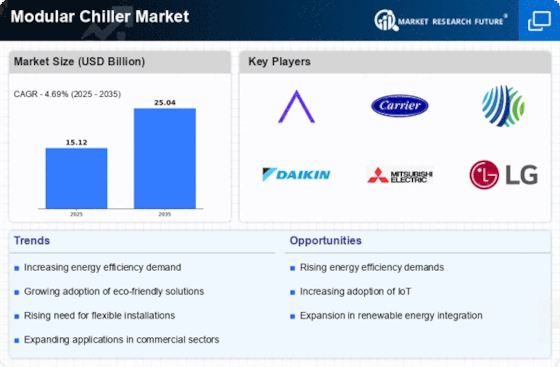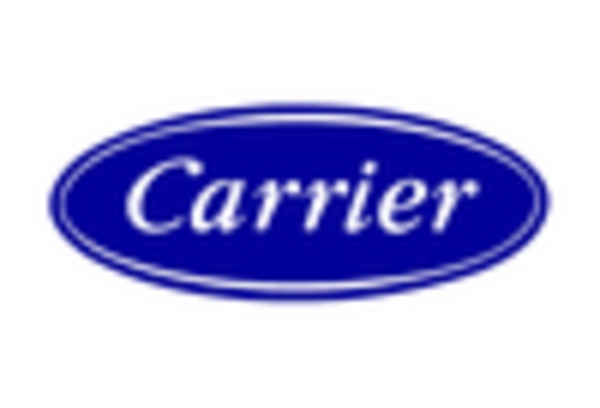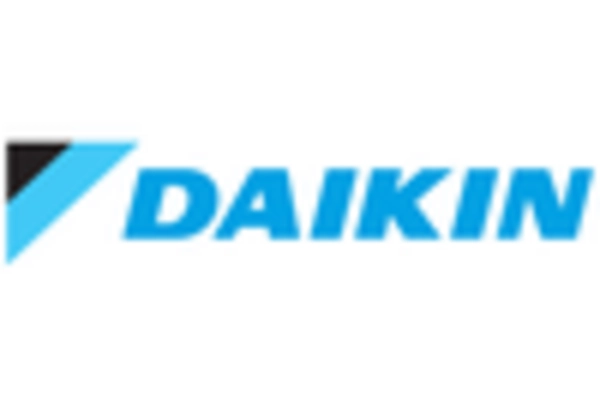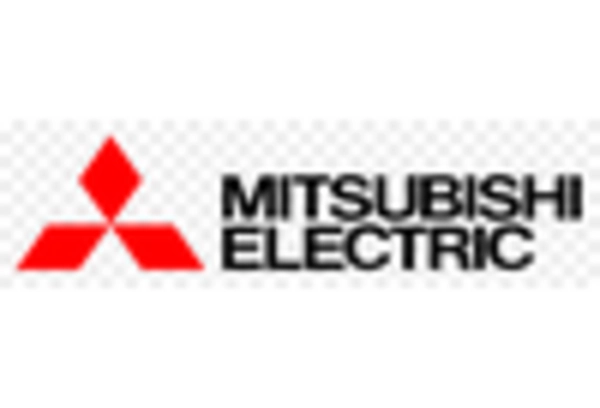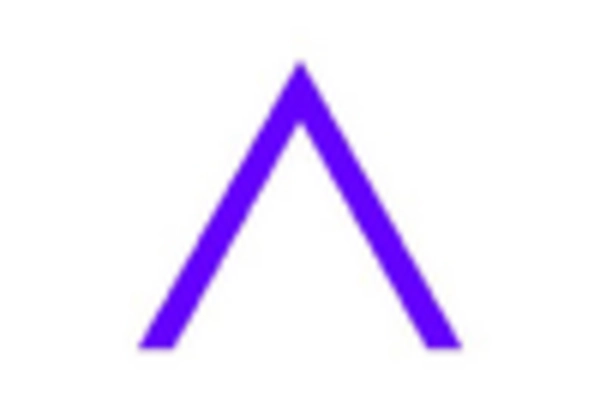Regulatory Compliance
Regulatory compliance is increasingly influencing the Modular Chiller Market. Governments worldwide are implementing stringent regulations aimed at reducing greenhouse gas emissions and promoting energy efficiency. These regulations often require industries to adopt advanced cooling technologies that meet specific environmental standards. Modular chillers, which can be designed to comply with these regulations, are becoming a preferred choice for many organizations. For instance, the introduction of the Energy Efficiency Ratio (EER) standards has prompted manufacturers to innovate and enhance the performance of their chillers. Consequently, the Modular Chiller Market is witnessing a shift towards products that not only meet regulatory requirements but also offer enhanced performance and sustainability.
Energy Efficiency Demand
The increasing demand for energy-efficient solutions is a primary driver in the Modular Chiller Market. As energy costs continue to rise, businesses and consumers are seeking systems that minimize energy consumption while maintaining optimal performance. Modular chillers, known for their ability to operate at varying loads, provide a solution that aligns with this demand. According to recent data, energy-efficient chillers can reduce energy consumption by up to 30%, making them an attractive option for industries aiming to lower operational costs. This trend is further supported by government incentives for energy-efficient technologies, which encourage investment in modular chillers. As a result, the Modular Chiller Market is likely to experience growth as more organizations prioritize energy efficiency in their cooling solutions.
Growing Industrialization
The rapid pace of industrialization is a significant driver for the Modular Chiller Market. As industries expand, the demand for efficient cooling systems rises, particularly in sectors such as manufacturing, pharmaceuticals, and food processing. Modular chillers offer scalability and flexibility, allowing industries to adjust their cooling capacities according to fluctuating demands. Recent statistics indicate that the industrial sector accounts for a substantial portion of energy consumption, further emphasizing the need for efficient cooling solutions. This trend is likely to continue as more industries recognize the benefits of modular chillers in optimizing their operations and reducing energy costs, thereby propelling the growth of the Modular Chiller Market.
Technological Innovations
Technological innovations play a crucial role in shaping the Modular Chiller Market. The development of advanced control systems, IoT integration, and smart technologies has enhanced the efficiency and performance of modular chillers. These innovations allow for real-time monitoring and optimization of cooling systems, leading to improved energy savings and operational efficiency. Furthermore, the integration of predictive maintenance technologies helps in reducing downtime and maintenance costs. As industries increasingly adopt these advanced technologies, the demand for modular chillers is expected to rise. The Modular Chiller Market is thus positioned to benefit from ongoing technological advancements that enhance the functionality and reliability of cooling systems.
Increased Focus on Sustainability
The heightened focus on sustainability is a driving force in the Modular Chiller Market. Organizations are increasingly prioritizing environmentally friendly practices, leading to a surge in demand for sustainable cooling solutions. Modular chillers, which can be designed to utilize natural refrigerants and reduce carbon footprints, align well with these sustainability goals. Additionally, many companies are setting ambitious targets for reducing their environmental impact, further driving the adoption of modular chillers. Market data suggests that the demand for sustainable cooling solutions is expected to grow significantly, as businesses seek to enhance their corporate social responsibility initiatives. This trend is likely to propel the Modular Chiller Market as more organizations invest in sustainable technologies.


